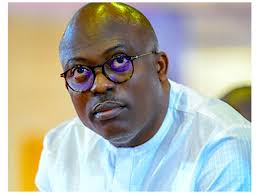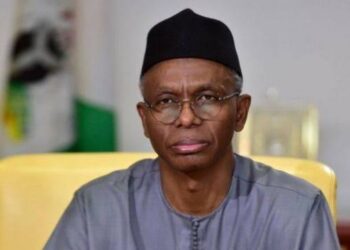Since the assumption of office by President Muhammadu Buhari, there have been repeated but unsuccessful attempts at further altering Nigeria’s electoral law with a view to improving the credibility of outcomes of elections in the country. JOSHUA EGBODO writes on the past, and issues surrounding latest effort of the current House of Representatives
The 8th assembly’s experience
During the tenure of the 8th Assembly of Nigeria’s House of Representatives, several attempts were made at further amending the 2010 Electoral Act, but unlike the experience under the late Presidents Umar Musa Yar’Adua-Goodluck Jonathan era, when a measure of improvements were achieved through such alterations, efforts of the National Assembly then got truncated by President Buhari, who for some reasons vetoed the amendment bill for a record four times.
Before the 8th assembly of the House of Representatives, a lot had happened, creating concerns over the success of the 2019 general elections, which was then fast approaching. Moves were therefore made to improve on the gains recorded through the earlier reforms introduced under former President Goodluck Jonathan’s regime as prelude to the 2015 general elections.
In attempting to introduce more reforms, the then Senate President, and Chairman of the 8th National Assembly, Dr. Bukola Saraki defended the fresh move, saying the proposed amendment was intended to enhance the electoral process, if well applied by the nation’s electoral umpire; Independent National Electoral Commission (INEC).
“We started work on this law (Electoral Act) in 2016 to prevent a situation where it would become part of the election controversies. What we have done with that bill is to raise the level of transparency, credibility and acceptability of our electoral process. We made sure that if the law is assented to and honestly applied by INEC and all those concerned, it will give us an election that will be better than what we had in 2015”, Saraki had stated.
The holes in President Buhari’s eyes
In spite of repeated efforts in addressing the President’s concerns, Buhari withheld assent to the bill, citing his reasons at the different times, one of such being the attempt at reordering the election sequence as against the one earlier announced by INEC.
But after what many saw as addressing the election-reordering sequence controversy, President Buhari yet in declining assent to the bill, in a letter to then Speaker of the House of Representatives, Hon. Yakubu Dogara dated December 6, 2018 and conveying his latest decline in assenting to the bill, said “pursuant to Section 58(4) of the Constitution of the Federal Republic of Nigeria 1999 (as amended), I hereby convey to the House of Representatives, my decision to decline Presidential Assent to the Electoral Act (Amendment) Bill 2018 recently passed by the National Assembly”.
Buhari said he was “concerned that passing a new electoral bill this far into the electoral process for the 2019 general elections which commenced under the 2015 Electoral Act, could create some uncertainty about the applicable legislation to govern the process. Any real or apparent change to the rules close to the election may provide an opportunity for disruption and confusion in respect of which law governs the electoral process”. What the President implied then was that the latest document, prepared in a manner to address his earlier concerns was coming out too close to the election, and that if enacted may leave INEC confused.
He also cited drafting issues as another reason for his decline of assent, even as a clause in the amendment for “electronic transmission of results” was an issue to the President. The then spokesman of the Buhari Campaign Organisation, and later Minister of State for Labour and Employment, Mr. Festus Keyamo was captured on a breakfast television programme saying that “electronic transmission of results” across Nigeria won’t work at that moment because most parts of the country, especially rural areas had no internet access.
Buhari yet adamant
However, with some of the concerns raised in turning down assent to the bill hurriedly addressed, the final condition came from the President that he would sign the bill, if only a caveat is introduced by the National Assembly to the effect that the law cannot be applied until the conclusion of the 2019 general elections, a move that nailed the coffin of the then draft Bill.
Reps’ later resolve
With the presidential assent decline, the 9th House of Representatives yet seemed determined to see the Bill scale the huddles. Chairman of the House Committee on Electoral Matters, Hon. Aisha Dukku at the inaugural meeting of the panel made the disclosure, even as she expressed disappointment over Buhari’s veto. She said there was a need to reintroduce the bill in order to ensure that important amendments which would improve the country’s electoral process are made.
Dukku, who also chaired the same committee in the preceding assembly of the House recalled that following in-depth reviews, the committee made recommendations, but that while the president’s observations were accordingly addressed, and the bill was again passed in December 2018 and later in April 2019 following another decline to assent by the President Buhari inter alia, the bill was yet vetoed by the president. “As it stands, the Electoral Act (amendment) Bill is still hanging; hence there is need for this committee to bring it up because there are several important amendments that will improve our electoral process”, she stated.
Curious, worrisome delay
After the new resolve of the committee, the bill was returned to the House, ostensibly with improvements on its earlier content. The committee on February 23, 2021, presented its report on the bill, which with the updated practice of the house do not require the whole procedures involved in passing a bill, since it was returned from the immediate past assembly, but had since then curiously unattended to by the House.
The delay had been greeted by allegations from opposition political parties, especially members of the Peoples Democratic Party (PDP), that “the ruling All Progressives Congress (APC) does not want the Electoral Act amended before the 2023 general elections.” How President Muhammadu repeatedly declined to sign the various versions of the bill transmitted to him for assent before the 2019 general elections were cited as “frustrating tactics of the current government.”
A while after the committee report was laid, journalists covering activities of the House of Representatives engaged Chairman of the Committee on Media and Public Affairs, Hon. Benjamin Kalu, at a media conference to explain why consideration and adoption of the report was being delayed. Kalu had said “the then ongoing nationwide registration and revalidation exercise by the ruling All Progressives Congress did not allow the House to consider the report.”
The spokesman of the House at the time assured that the report will be considered and passed, when members who were in their constituencies to campaign for the APC membership revalidation returned, stressing that the electoral bill was one of the House’s top priority legislative proposals.
“We have promised Nigerians that the bill will be out before the middle of this year, which is June. We are certain that it will not go beyond the middle of this year. The determination of the House is to get it discharged even before the end of April. As you all know, the report is ready; it was tabled for presentation, but due to the fact that most members wanted the report to come in and be considered the same day, and the House needed to be full to do that, it was stepped down. The Electoral Act is very important to what we do and you cannot consider it when we have a lot of constituencies not represented on the floor.
“Be assured that in no distant time, it is going to come up for laying because they have finished the technical work on it. So let’s have a fuller house that will be able to ensure that all the clauses carry the intention of the house”, he had assured.
Fresh reawakening
In a dramatic twist last Thursday, a member of the House, Hon. Bede Eke Uchenna from Imo state raised a point of order during plenary, complaining that in spite of promises to Nigerians by leadership of the lower legislative house of the National Assembly that the said Bill would be considered and passéd within the first quarter of this year, nothing has been done since the report was laid. I have been inundated by calls from my constituents, asking to know what the status of the report is, in fact yesterday, (Wednesday), there were threats to recall me over this matter”, the lawmaker said.
Any hope?
The APC registration exercise, which was a reason cited by the House’s spokesman as reason for the delay, extended three times, had ended since April 21, 2021, but nothing yet said about the bill, despite the fact that the Speaker, Femi Gbajabiamila, had repeatedly mentioned electoral reforms as one of the priority agenda of the House.
With the delay and no seeming action in sight, many Nigerians are of serious concern and pessimistic on the fate of the very important document. Though in response to Uchenna’s complaint, Deputy Speaker Idris Wase who sat over the plenary of last Thursday, said “every report laid before us is important, and we are all concerned about good governance”, with assurance that the bill will be considered, it is doubtful to many at the moment, if that will be of any impact for the 2023 election.




